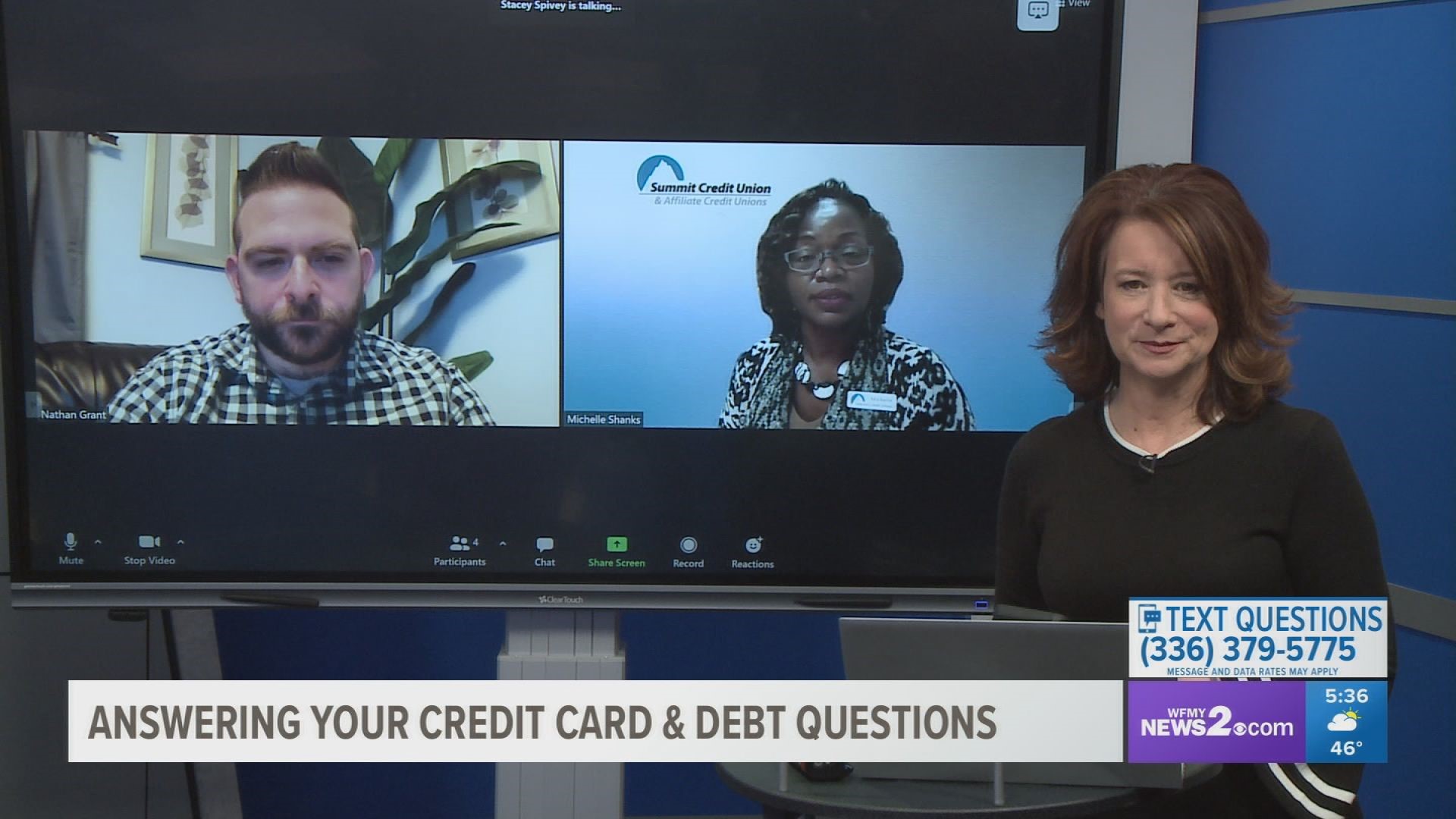GREENSBORO, N.C. — You make the money, you spend the money, but that doesn't mean you know the best way to make your money work for you. Whether it's how much debt is too much or what bills to pay to up your credit score or finding out why overdraft protection is good and bad, getting answers from experts is the way to go!
TODAY, Michelle Shanks, Regional Partnership Manager from Summit Credit Union, and Nathan Grant from Credit Card Insider join us to answer your questions. Text 336-379-5775.
One of the hardest things for credit card users to overcome is the interest rate on their card. Depending on the card company, those interest rates could be pretty high. But there is a way to bring those interest rates down to zero percent---a balance transfer.
When used responsibly, balance transfers can be a great way to reduce the amount of interest you’re charged as you pay off debt. Meaning, you must make all payments on time. Credit Card Insider has a full list of the cards that a best for a balance transfer.
Remember, it is okay to own multiple credit cards as long as you are able to keep up with them. But after you pay them off, don't close the account because it could negatively affect your credit score.
There are multiple things factored into your credit score. Payment history makes up 35%, amounts owed is 30%, 15% for the length of your credit history, 10% for new credit, and the remaining 10% goes to types of credit used. For example, buying a house or taking out a lease on a new car would be considered new credit.
If you or your child are a college student, a student credit card could help build credit. But remember, just like other cards you must pay them off to build up that credit. You can find a list of student credit cards here.
DEBIT VS CREDIT CARDS
Pay attention to this TRUTH: a debit card is a debit card, is a debit card. Even if you run it as a credit card, it is still a debit card that is linked to your checking account.
If a crook charges up your entire bank account -- your cash is gone. The bank will of course work with you to get it all replaced, but it could take several days or a week to get it all straightened out. In the meantime, you have no access to your checking account money.
OVERDRAFT PROTECTION
Summit Credit Union explains how this works and what you need to be aware of.
How Overdraft Privilege Works When you write a check, or make an automatic bill payment or other electronic payment, for more than the amount in your checking account, you overdraw your account. When you overdraw your account, we normally return your check, or other payment, without paying it and charge you a “non-sufficient funds” fee.
The company that you wrote the check to may also charge you a “returned check” fee in addition to the fee we charge you.
We offer an Overdraft Privilege service so that your checks and automatic drafts and payments are not returned when you overdraw your account. With this service, you’ll pay an “overdraft” fee equal to our “non-sufficient funds” fee but you will avoid a fee from the company who sent the item through and you will stay in good standing with them.
You can opt-out of the Overdraft Privilege service at any time by calling Member Services at the number listed below, or by visiting our website. Note that Overdraft Privilege does not include ATM, Debit Card, or Teller transactions and that even with Overdraft Privilege, whether overdrafts will be paid is discretionary, and we reserve the right not to pay. For example, we typically do not pay overdrafts if an account is not in good standing, if the member is not making regular deposits, or if they have too many overdrafts.

